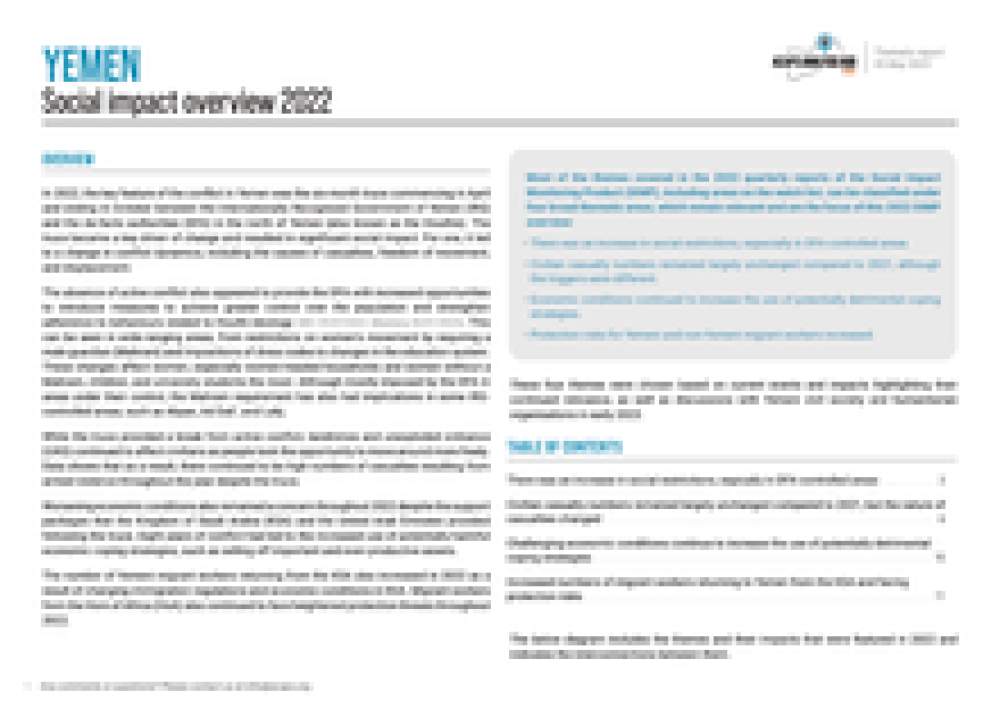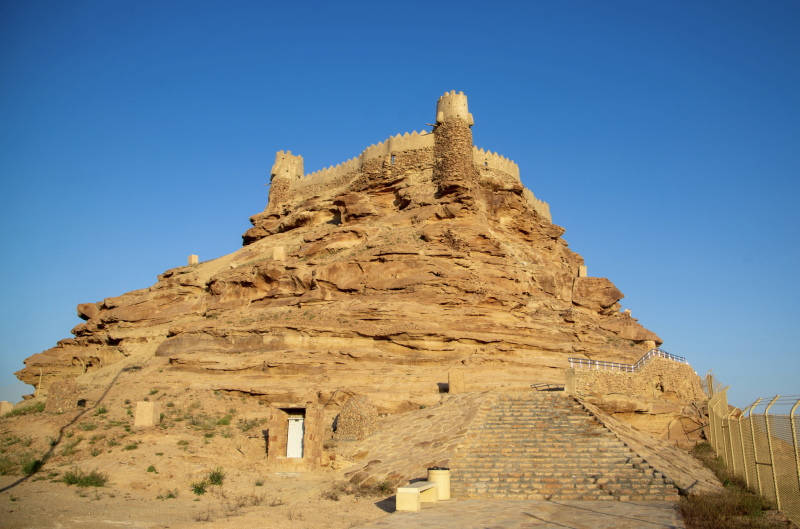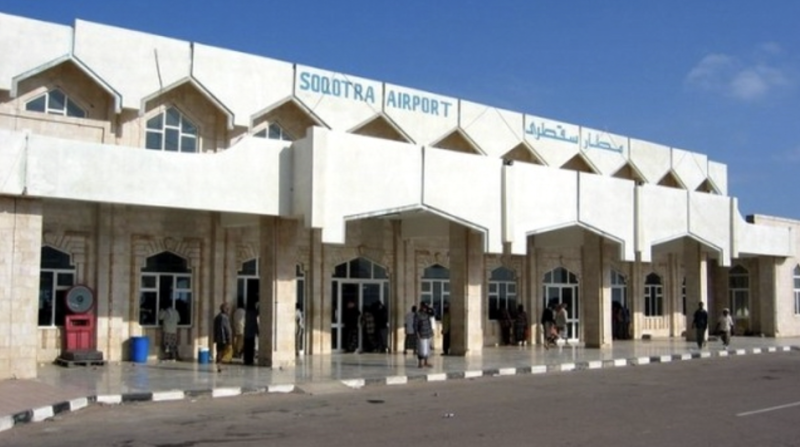ACAPS Thematic report - Yemen: Increased DFA intervention in the private sector in DFA-controlled areas, 29 February 2024


OVERVIEW
The 2019 National Vision for State Building outlines the restructuring of institutional governance and legal frameworks, including key economic sectors, as a central strategic objective of the de-facto authority (DFA) in the north of Yemen (also known as the Houthis) (SPC 26/03/2019; SCSS 14/04/2023). Their policies, however, appear aimed at disrupting the procedural and managerial status quo to enable the DFA full control over key economic sectors and resources, including the private sector. Substantial changes in private sector activities and working environments had already begun in 2019, but since the official expiry of the truce with the Internationally Recognized Government of Yemen (IRG) in October 2022, the DFA has intensified efforts to control, tax, and intervene in the private business sector in most of the Yemeni economic market under its control.
The DFA’s multifaceted approach to regulating imports and distribution directly influences private sector stakeholders – including importers, distributors, and truck drivers. DFA strategies affect cost considerations, transport routes, and access to incentives, potentially reshaping trade dynamics and distribution networks within the region.
The continued struggle to control the financial system is critical to influencing the trajectory of the conflict and peace process in Yemen. The conflict’s financial dynamics involve conflicting directives from the Central Bank of Yemen (CBY) branches in Sana’a and Aden, disrupting foreign exchange and funding for food imports and fostering economic instability. DFA control over foreign exchange supply influences private-sector dependence on its policies.
The DFA-led restructuring of the private sector via the takeover of the Sana’a-based Chamber of Commerce and Industry (SCCI) aims to influence ownership in key sectors and promote economic ties with specific countries. This dominance limits diverse viewpoints and independent input from the private sector, aligning interests with the DFA elite.
The DFA’s consolidation of political and economic authority is a strategic move to gain a distinct advantage in the peace process. Growing DFA control is intricately tied to its attempt to diminish the political and economic influence of the IRG. Internally, the DFA navigates a delicate balance between the influence of conservative Islamists and the need to secure economic control and bolster income. Notably, this involves granting strategic control over the SCCI to key business elites, solidifying the DFA’s economic dominance. Concurrently, measures such as price controls demonstrate the DFA’s efforts to appease the population, underscoring its commitment to managing societal pressures and maintaining stability

Al-Jawf -- A landmine explosion in Yemen’s Al-Jawf province claimed the life of a woman and left another civilian with severe injuries, in wh…

Aden -- Russia has called on all parties involved in the Yemeni conflict to seek consensus-driven solutions that safeguard the country’s unit…

Socotra — Local residents and maritime sources said the closure of Socotra International Airport has left the Yemeni island almost completely…